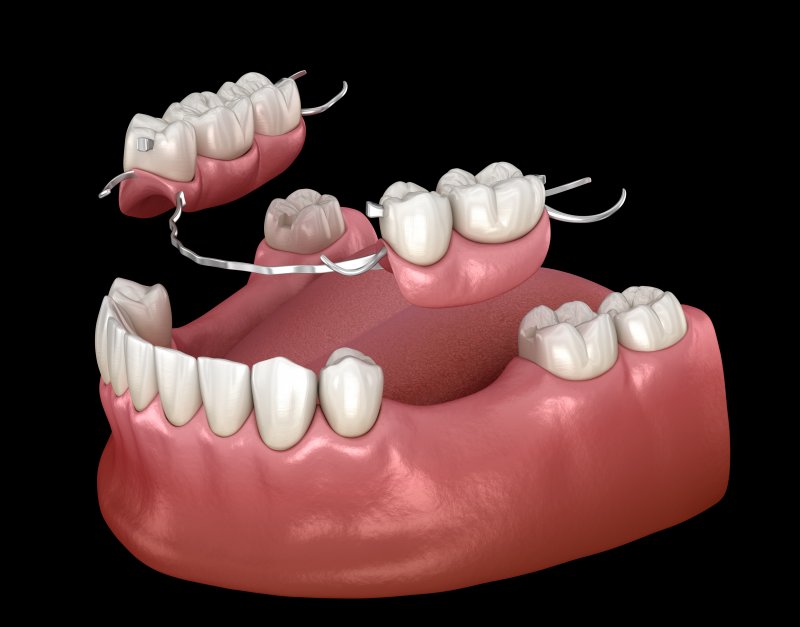Key Takeaways
- Discover technological advancements in denture creation and design.
- Understand how lifestyle choices affect denture longevity and effectiveness.
- Learn about the types of dentures and their specific benefits.
- Find out about new research and materials improving denture quality.
Advancements in Denture Technology
The world of dentures is evolving rapidly. With new materials and technology, the comfort and effectiveness of dentures have improved significantly. Modern dentures utilize advanced materials that are lighter, more durable, and more lifelike than ever before. These innovations have made dentures replacement a seamless experience for many.
Some of the critical advancements include digital imaging and 3D printing. This technology allows for precise customization of dentures, ensuring a better fit and enhanced comfort. Patients no longer have to deal with the discomfort and inconvenience of ill-fitting dentures. Moreover, the process of creating dentures has also become quicker and more efficient. Using digital impressions, dental professionals can avoid traditional mold-taking methods, reducing the margin of error and providing a more accurate representation of a patient’s mouth.
New materials such as high-impact acrylics and flexible polymers have also emerged, providing a more natural appearance and better functionality. These materials mimic the color and clarity of natural teeth and gums, giving wearers a more authentic look. These modern materials also ensure dentures are less prone to fractures and wear, enhancing their longevity.
Types of Dentures and Their Benefits
There are various types of dentures available today, each designed to meet specific needs and preferences:
- Complete Dentures are best for individuals who need to replace all their teeth. These dentures look natural and provide a complete set of teeth, restoring the ability to chew and speak effectively. They are usually made of flesh-colored acrylic that fits over the gums.
- Partial Dentures are ideal for those who are missing only some teeth. They fill in the gaps and prevent other teeth from shifting. Partial dentures are often attached to the natural teeth with metal clasps or precision attachments, providing a secure and stable fit. They help maintain the alignment of remaining teeth and preserve the integrity of the dental arch.
- Implant-Supported Dentures: Provide a stable and secure fit, reducing the chances of slippage. They are anchored by dental implants, offering a more natural feel and improved chewing ability. Implant-supported dentures are especially beneficial for individuals with significant bone loss in the jaw, as the implants stimulate bone growth and prevent further deterioration.
Maintaining and Caring for Dentures
Proper care and maintenance can prolong the lifespan of your dentures. Regular cleaning and avoiding certain foods can make a significant difference. Here are some tips to ensure your dentures stay in good shape:
- Clean your dentures daily using a soft-bristle toothbrush to remove food particles and plaque. Be gentle to avoid scratching the surface of the dentures.
- Soak them in a denture cleaning solution overnight to keep them fresh and bacteria-free. This helps maintain their cleanliness and prevent odor.
- Avoid stiff or sticky foods, which can damage or make dentures slip. Cutting food into smaller, manageable pieces is also an excellent practice to ease chewing.
In addition to daily cleaning, regular visits to the dentist are essential for maintaining optimal denture health. Dentists can check for any signs of wear or damage and make necessary adjustments to ensure a proper fit. It helps prevent discomfort and potential oral health issues such as sores or infections.
The Impact of Lifestyle on Dentures
Your lifestyle choices can profoundly impact the condition and effectiveness of your dentures. Smoking and excessive consumption of staining foods or drinks, such as coffee, tea, and red wine, can discolor dentures and affect their fit. Understanding these factors and adjusting your lifestyle to maintain optimal denture health is essential.
Maintaining a balanced diet rich in vitamins and minerals is also crucial for the overall health of your gums and remaining natural teeth. Foods high in calcium and vitamin D, such as dairy products and leafy greens, can help strengthen your jawbone, providing a better foundation for your dentures.
The Future of Dentures
The future of dentures is bright, with ongoing research and development promising even more advanced options. Researchers are exploring using 3D printing and biocompatible materials to create custom dentures that offer unmatched comfort and functionality. These innovations are set to make dentures more accessible and effective for a broader range of patients.
One of the most promising advancements is the development of intelligent dentures equipped with sensors to monitor oral health. These sensors can detect pressure points, infections, or other abnormalities, providing valuable data to dental professionals for timely intervention. This technology could revolutionize how dentures are managed and maintained, improving patient outcomes.

